Women Change

What role do women play in addressing climate change ?
Women's Role in Addressing Climate Change: Women play a crucial role in addressing climate change through leadership and advocacy, innovative solutions, community engagement and education, and promoting gender equality and climate justice. They have led international negotiations, founded organizations dedicated to climate action, developed new technologies and business models, engaged in activities such as tree planting and waste reduction, and advocated for gender equality in decision-making processes. Women's contributions are essential to achieving a sustainable future for all.

How can we empower women to lead the fight against climate change ?
Empowering women to lead the fight against climate change involves recognizing their unique perspectives, capabilities, and contributions to environmental conservation. This multifaceted approach includes: 1. **Recognizing Gender-Specific Impacts of Climate Change**: - Highlight the disproportionate impact on women through awareness and education campaigns. - Promote gender-sensitive climate policies that address specific needs and challenges faced by women. - Ensure gender-disaggregated data collection for a better understanding of climate impacts. - Support gender analysis in climate research to explore its effects on communities. 2. **Encouraging Women's Participation in Decision-Making**: - Increase representation of women who prioritize climate action in political involvement. - Foster women-led climate initiatives that are designed, implemented, and led by women. - Provide training programs that equip women with necessary skills for leadership roles. - Create networking opportunities for women to connect, share knowledge, and collaborate. 3. **Investing in Women-Centric Infrastructure and Technology**: - Train women in green technologies and renewable energy sectors for sustainable job opportunities. - Offer grants and loans to women entrepreneurs creating eco-friendly businesses. - Develop gender-responsive infrastructure projects like water systems and renewable energy setups. - Support women farmers through education on climate-resilient farming practices and access to resources. 4. **Amplifying Women's Voices in Climate Conversations**: - Ensure fair representation of women's voices in media coverage of climate issues. - Leverage digital platforms to amplify women's messages and campaigns related to climate change. - Support women-led grassroots movements focusing on local environmental issues. - Organize educational workshops in communities, led by women offering unique perspectives. By adopting these strategies, we can empower women, strengthen the fight against climate change with innovative solutions, and foster inclusive leadership.

How does climate change disproportionately affect women in developing countries ?
Climate change disproportionately affects women in developing countries due to socio-economic factors, cultural norms, and division of labor. Impacts include reproductive health issues, nutritional deficiencies, loss of traditional occupations, increased workload, water scarcity, and energy poverty. Adaptation and mitigation efforts should involve women in decision-making and build their capacities. Gender-sensitive policies and interventions are needed to address these challenges and promote a more equitable future.

How do climate change impacts differ for men and women in urban vs. rural areas ?
Climate change impacts vary by gender and geography, with urban and rural areas presenting distinct challenges for men and women. Urban men benefit from more job opportunities and adaptation resources, while urban women face vulnerabilities during extreme events, health concerns, and economic disruption. Rural men are often dependent on natural resources for livelihoods and may migrate due to climate change, whereas rural women bear agricultural responsibilities, caregiving roles, and water collection tasks, all of which are affected by climate stressors. Key differences include resource access, infrastructure, livelihood dependencies, and gender roles, with women often bearing a disproportionate burden. Addressing climate change requires recognizing these differences and developing targeted strategies for the most vulnerable populations.

What role do women play in climate change adaptation and mitigation efforts ?
Women play a crucial role in climate change adaptation and mitigation efforts. They are involved in sustainable agriculture, conserving natural resources, enhancing energy efficiency, advocating for climate action, and building resilience. By recognizing and supporting their contributions, we can enhance our collective efforts to address climate change.

What are the challenges faced by women in adapting to climate change ?
Women face unique challenges in adapting to climate change related to their roles as caregivers, farmers, and community members, limited access to resources and decision-making power. Key challenges include limited access to education, financial resources, land and property rights; caregiving responsibilities such as water collection and childcare; limited participation in decision-making processes due to political underrepresentation and cultural norms; and impacts on livelihoods through changes in agriculture, income generation, and migration. Addressing these challenges requires a gender-sensitive approach to climate change adaptation that provides education, improves access to resources, and supports women's roles.
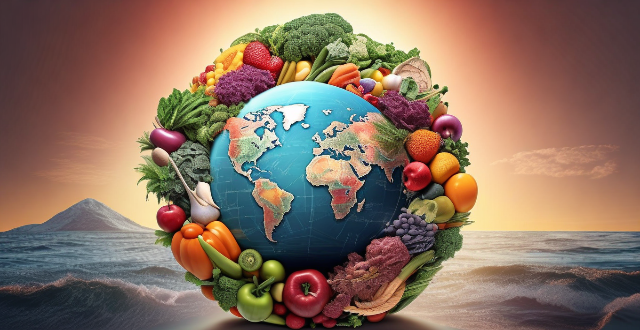
What are the impacts of climate change on women's health and well-being ?
Climate change is a global issue that affects everyone, but its impacts are not distributed equally across all populations. Women are often disproportionately affected by climate change due to their roles in society and their biological differences from men. This essay discusses the various ways in which climate change can have negative impacts on women's health and well-being, including extreme weather events, food security and nutrition, water scarcity, reproductive health, and mental health. It is essential that we take action to mitigate the effects of climate change and ensure that all people, regardless of gender, can live healthy and fulfilling lives.
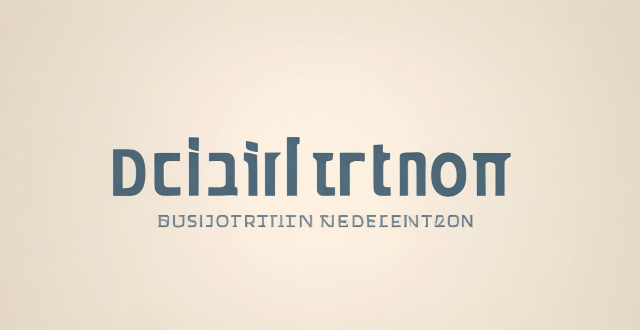
What is the relationship between climate change and gender-based violence ?
The text discusses the correlation between climate change and gender-based violence, emphasizing that they intersect in several ways. It mentions how climate change exacerbates social inequalities, making women more vulnerable to gender-based violence, such as sexual assault and harassment during displacement and overcrowding caused by natural disasters. It also points out the economic impact on women who manage household resources during scarcity, potentially leading to domestic violence due to increased stress and tension. The text further highlights how climate change can reinforce harmful gender norms, affecting men's ability to provide for their families and leading to frustration and aggression towards women. It also notes the impact of climate change on women's access to justice, as legal institutions may be disrupted or overwhelmed by climate-related disasters, making it difficult for women to report incidents of gender-based violence or seek legal recourse. Lastly, it mentions the negative impact of climate change on mental health, which can increase the risk of gender-based violence. The text concludes by emphasizing the need for a comprehensive approach to address both problems, taking into account their intersection and differential impact on various populations, to create a more equitable and just world.

What are the gender-specific impacts of climate change on agriculture and food security ?
Climate change has gender-specific impacts on agriculture and food security. Women often bear the brunt of these impacts due to their roles in household food production and preparation, income generation through small-scale farming, and community leadership in natural resource management. Men, on the other hand, may experience changes in employment patterns, loss of income, increased stress, and social conflicts over resources. Both women and men face challenges such as reduced crop yields, increased workload, loss of traditional knowledge, health risks, and reduced dietary diversity. Addressing these gender-specific impacts requires a comprehensive approach that promotes gender equality and empowers both women and men to adapt to climate change.
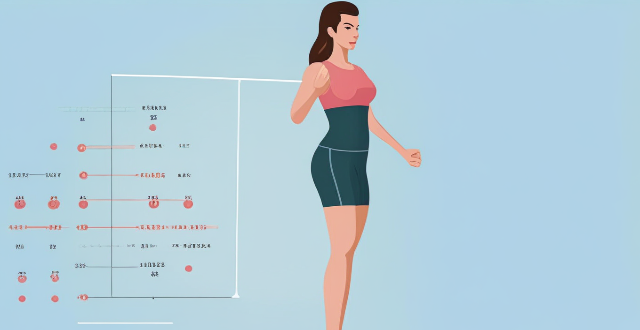
How long does it take for women to see changes in their body after starting a new fitness plan ?
When a woman starts a new fitness plan, the timeline for seeing physical changes can vary based on several factors such as genetics, diet, exercise routine, and consistency. During the first few weeks, women may experience initial adjustments such as muscle soreness and fatigue. By week 5-8, minor changes in body composition may become noticeable. Moderate changes should be visible by week 9-12, and significant changes can be expected after several months of consistent effort. It is important to remember that progress takes time and patience, but with dedication and hard work, women can achieve their desired physical changes.

In what ways does education empower women socially and politically ?
Education is crucial for women's empowerment, enabling them to challenge societal norms and contribute more fully to society. It fosters increased awareness, improved socioeconomic status, and enhanced social relationships. Education also leads to greater political participation, policy influence, and promotion of gender equality. Overall, education enriches society by improving the lives of women and contributing to a more equitable world.

How should women behave in a mixed-gender professional environment ?
Navigating gender dynamics in a mixed-gender professional environment requires women to exhibit confidence, professionalism, and foster positive relationships with colleagues. Key guidelines include speaking up, taking credit for achievements, dressing appropriately, conducting oneself with integrity, collaborating with colleagues, networking, challenging stereotypes, seeking feedback, supporting diversity, mentoring others, staying authentic, and pursuing personal growth. By following these principles, women can thrive professionally and contribute positively to the workplace culture.

What precautions should women take during menstrual health care ?
Women should maintain good hygiene, use appropriate sanitWomen should maintain good hygiene, use appropriate sanithydrated, exercise regularly, use appropriate sanitary products, stay hydrated, exercise regularly, manage stress, eat a healthy diet, and seek medical help when needed during menstrual health care.

How can we encourage more women to pursue leadership roles ?
Encouraging Women to Pursue Leadership Roles - **Education and Awareness**: Promote STEM education, highlight role models, address gender stereotypes. - **Workplace Policies and Practices**: Establish flexible work arrangements, provide mentorship programs, enforce anti-discrimination laws. - **Networking and Professional Development**: Sponsor women's networking events, offer leadership training programs, create women-specific scholarships. - **Cultural Change and Empowerment**: Promote a culture of inclusivity, address the confidence gap, celebrate women's achievements.

How does climate change affect gender equality ?
The text discusses the impact of climate change on gender equality, highlighting increased vulnerabilities for women in health, economics, and social factors. It further points out how climate change exacerbates existing inequalities through gender-based violence and educational setbacks. However, it also identifies opportunities for resilience and empowerment through resilient livelihoods, enhanced participation, and improved health and safety measures. The conclusion emphasizes the importance of addressing climate change with a gender lens to achieve sustainable development and a more equitable future.

What are the key challenges faced by women in managing relationships ?
Women face unique challenges in managing relationships, including powerWomen face unique challenges in managing relationships, including power division of labor, communication barrier Recognizing these challenges and working together to overcome them can lead to stronger, healthier relationships.
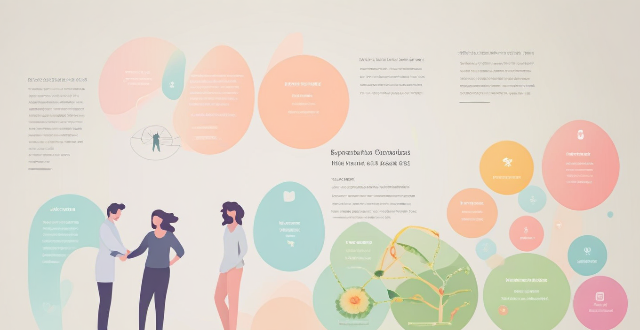
What are some tips for women to manage work-life balance effectively ?
This topic provides valuable insights and actionable strategies for women aiming to achieve a healthier work-life balance. The suggestions range from practical time management tips to self-care practices, emphasizing the importance of setting boundaries, delegating responsibilities, and leveraging technology. By prioritizing personal well-being and embracing flexibility, women can enhance their productivity and overall life satisfaction. The text underscores the necessity of building a support network and regularly reflecting on one's approach to balance, highlighting that achieving an ideal work-life equilibrium is a dynamic and ongoing process.

What are some successful examples of integrating gender equality into climate change initiatives ?
Integrating gender equality into climate change initiatives is crucial for achieving sustainable development and ensuring that everyone benefits from environmental protection measures. Successful examples include promoting women's participation in decision-making, incorporating gender perspectives into policies and programs, supporting women-led climate action initiatives, and addressing gender-based violence in climate displacement. These efforts not only promote social justice but also enhance the effectiveness of climate actions by harnessing the strengths and contributions of all individuals, regardless of their gender.

How can women effectively manage their wealth ?
Managing wealth is crucial for women to achieve financial security. Tips include setting SMART financial goals, creating a budget, building an emergency fund, investing wisely, prioritizing retirement savings, and seeking professional advice. By following these steps, women can effectively manage their wealth and achieve their financial goals.

What are the common fertility issues faced by women ?
Fertility issues can be a sensitive and complex topic for many women. There are several common fertility problems that women may face, which can impact their ability to conceive and carry a pregnancy to term. These include ovulation disorders, endometriosis, uterine fibroids, tubal blockage, and age-related infertility. It's important for women who are struggling with fertility to seek medical advice and explore treatment options that best suit their individual needs and circumstances.

How can we use sports to promote gender equality and empower women and girls ?
Promoting gender equality and empowering women and girls through sports involves increasing visibility, ensuring fair representation, improving access and inclusivity, providing education and training, implementing policy and legislation, promoting health and wellness, encouraging economic empowerment, engaging the community, and fostering cultural change. These efforts aim to break down barriers, challenge stereotypes, and create opportunities for women and girls to thrive both on and off the field.

How can women overcome gender bias in the startup world ?
Gender bias is a pervasive issue in many industries, including the startup world. Women face unique challenges when it comes to funding, networking, and building their businesses. However, there are strategies that women can employ to overcome these obstacles and thrive in the startup world. Here are some tips: 1\. Build a Strong Network: Networking is crucial for any entrepreneur, but it's especially important for women who may not have as many natural connections in the industry. Attend industry events, join professional organizations, and connect with other entrepreneurs on social media. Make sure to diversify your network by seeking out people from different backgrounds and perspectives. 2\. Develop Your Skills: Take courses or attend workshops to develop your skills in areas such as finance, marketing, and management. This will not only make you a more well-rounded entrepreneur but also demonstrate your commitment to learning and growing. 3\. Be Confident and Assertive: Women are often socialized to be polite and deferential, which can sometimes hold them back in business settings. Practice being confident and assertive in meetings and negotiations. Remember that you deserve to be taken seriously and that your ideas and opinions are valuable. 4\. Seek Out Mentors and Advisors: Find mentors or advisors who can offer guidance and support as you navigate the startup world. Look for people who have experience in your industry and who share your values and goals. 5\. Leverage Your Strengths: Women often bring unique strengths to the table, such as empathy, collaboration, and creativity. Emphasize these qualities in your pitches and marketing materials, and don't be afraid to highlight how they set you apart from your competitors. 6\. Stay Persistent: Starting a business is hard work, and there will inevitably be setbacks along the way. Stay persistent and focused on your goals, even when faced with rejection or failure. Remember that every challenge is an opportunity to learn and grow. 7\. Advocate for Yourself and Others: Speak up about issues of gender bias and inequality whenever you see them. Use your platform to advocate for change within your industry and support other women who are facing similar challenges. By working together, we can create a more equitable and inclusive startup world for all entrepreneurs.

How does climate change exacerbate gender inequality in access to resources and decision-making ?
Climate change exacerbates gender inequality by disproportionately affecting women and girls in access to resources and decision-making. Women often have limited access to resources such as water, food, and land due to cultural norms, lack of education, and poverty. They also have limited participation in decision-making processes due to cultural norms and lack of education. To address these issues, it is important to prioritize gender equality in climate change adaptation and mitigation strategies by ensuring that women's voices and experiences are taken into account when making decisions.

How can women protect themselves from gender-based discrimination and harassment ?
Gender-based discrimination and harassment are pervasive issues that women face in various settings, including the workplace, education, and public spaces. To protect themselves, women can take several proactive steps to ensure their safety and well-being, including educating themselves about their rights and forms of harassment, creating a supportive network, taking preventive measures, reporting incidents promptly, seeking legal advice and counseling services when needed, and advocating for change by raising awareness and participating in policy making. By employing these strategies, women can better protect themselves from gender-based discrimination and harassment while also contributing to a broader cultural shift towards equality and respect.

How does scientific literacy among women influence their career choices in science and technology fields ?
Scientific literacy significantly influences women's career choices in science and technology fields by enhancing opportunities, overcoming barriers, increasing diversity, and improving representation. It enables women to access complex scientific information, develop problem-solving skills, broaden their perspectives, break stereotypes, promote equality, address biases, expand career horizons, encourage mentorship, foster collaboration, challenge underrepresentation, influence policy, and change public perceptions about the suitability of these fields for females.

What are the benefits of having a higher level of scientific literacy among women ?
The article discusses the advantages of having a higher level of scientific literacy among women. It highlights how it leads to improved health outcomes, economic empowerment, environmental sustainability, social progress, and global impact. Women with strong scientific literacy are more likely to make informed healthcare decisions, pursue careers in STEM fields, engage in environmentally responsible behaviors, challenge traditional gender roles, and contribute to solving global issues. The benefits of enhancing women's scientific literacy are vast and far-reaching, making it a key component of our collective efforts towards creating a more equitable world where everyone has access to quality education and opportunities.

How can we address the stigma surrounding mental health in women ?
Summary: Addressing the stigma surrounding mental health in women requires a comprehensive approach involving education, awareness, and advocacy. Public education campaigns can help demystify mental health, while school programs can teach young girls that it's okay to seek help. Corporate training and media representation can also play a role in changing public perception. Support groups, mental health advocates, government policies, and employer policies can provide support and resources for women struggling with mental health issues. By working together, we can create a society where women feel comfortable discussing their mental health and seeking help without fear of judgment or discrimination.
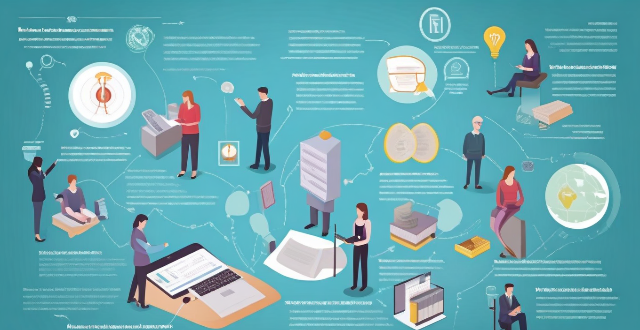
How can we address the intersectionality of climate change and gender inequality ?
Addressing the intersectionality of climate change and gender inequality requires a comprehensive approach that considers both environmental and social dimensions. Key points include recognizing the intersectionality, including women in decision-making processes, promoting gender-sensitive climate policies, supporting women's access to education and empowerment, ensuring access to sustainable energy and resources, addressing gender-based violence, and fostering collaboration and partnerships. By taking these steps, we can work towards a more equitable and sustainable future for all.
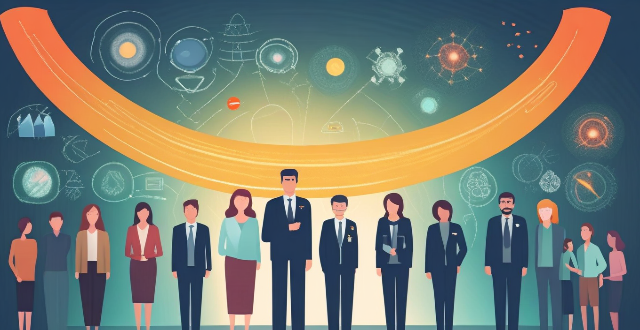
How can we promote gender equality in climate policy making ?
Promoting gender equality in climate policy making is crucial for ensuring inclusive policies that address the needs of all genders and harness the potential of everyone in combating climate change. Key strategies include ensuring equal representation of men and women at all levels of decision-making, addressing gender-specific impacts of climate change, promoting education and training, collaborating with women's organizations, and creating safe spaces for open expression. By implementing these measures, we can move towards more effective and equitable solutions to tackle climate change.

How can women maintain healthy boundaries in their relationships ?
Maintaining healthy boundaries in relationships is essential for women's well-being. Strategies include identifying personal limits, clear communication, setting boundaries in friendships, family, workplace, and romantic relationships. Dealing with boundary violations involves confrontation, consequences, and seeking support. Self-care through recharging, reflection, and adapting to growth is also crucial. By understanding and applying these strategies, women can create balanced and respectful relationships that prioritize their individuality and well-being.